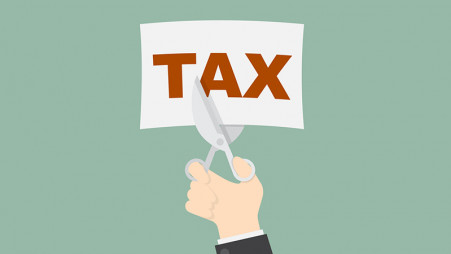From next FY, parliament takes control of tax exemptions, capped at 5 years
- Update Time : Thursday, May 8, 2025

Staff Correspondent:
Starting from the next fiscal year, the National Board of Revenue (NBR) and the finance ministry will no longer have the authority to grant exemptions on tax, VAT, or customs duties. This power will now rest solely with the parliament.
Additionally, any new exemptions granted will no longer be open-ended — they will be limited to a maximum term of five years.
In the absence of parliament, exemptions granted during the interim period will require cabinet approval and will be valid for no more than one year.
The NBR published the Tax Exemption Policy and Management Framework. This new policy will come into effect from the next fiscal year.
This reform is part of the conditions set by the International Monetary Fund (IMF) for providing loan packages to Bangladesh.
Until now, the NBR had the authority to grant long-term exemptions to individuals or institutions. For example, the country’s garment sector has enjoyed exemption benefits for the past four decades. Similarly, 10-year tax holidays have been offered to encourage the growth of local industries, with many organisations benefiting from such privileges for extended periods.
In the absence of a policy, concerns have been raised about the discipline and effectiveness of these exemptions. Allegations have surfaced that influential individuals, groups, and business organisations have used their power to secure tax exemptions worth thousands of crores of taka from the government.
Earlier this month, at a meeting, NBR Chairman Abdur Rahman Khan pointed out that the government is granting exemptions nearly equivalent to the total revenue it collects. According to NBR estimates, the government offered exemptions amounting to about 7% of GDP or over Tk3 lakh crore in 2021-22, while the country’s tax-to-GDP ratio remains below 8%.
The new policy also stipulates that tax holiday benefits will be strictly limited to eligible recipients. A judicial mechanism will be established to penalise those found guilty of illegally availing such benefits.


















